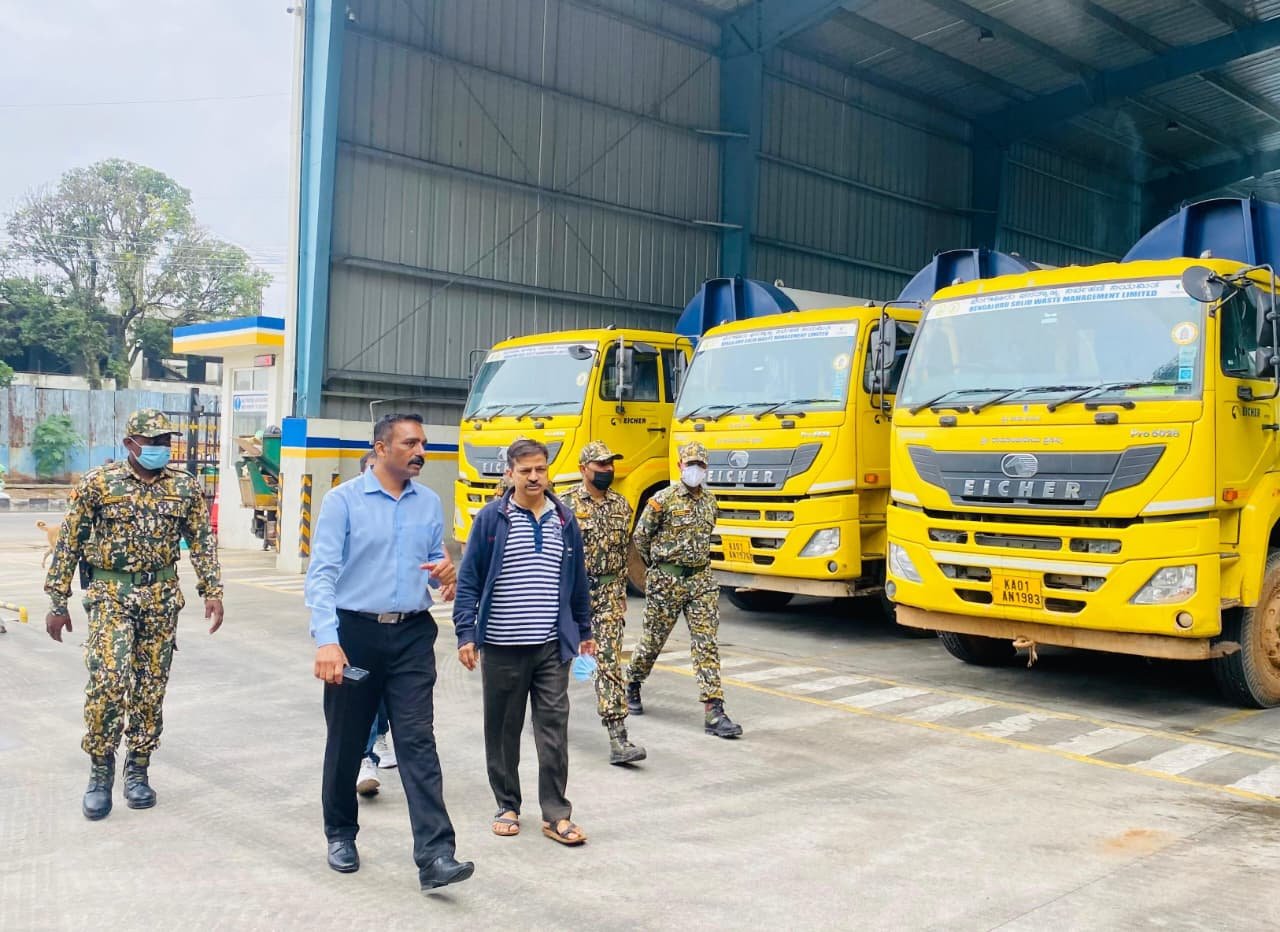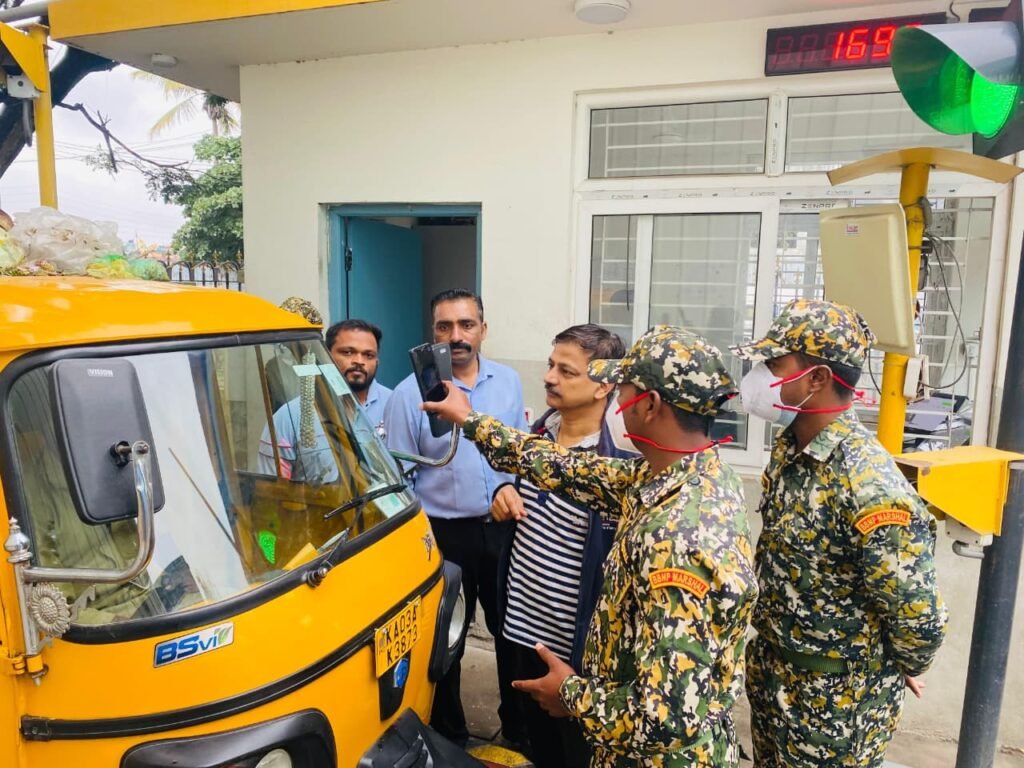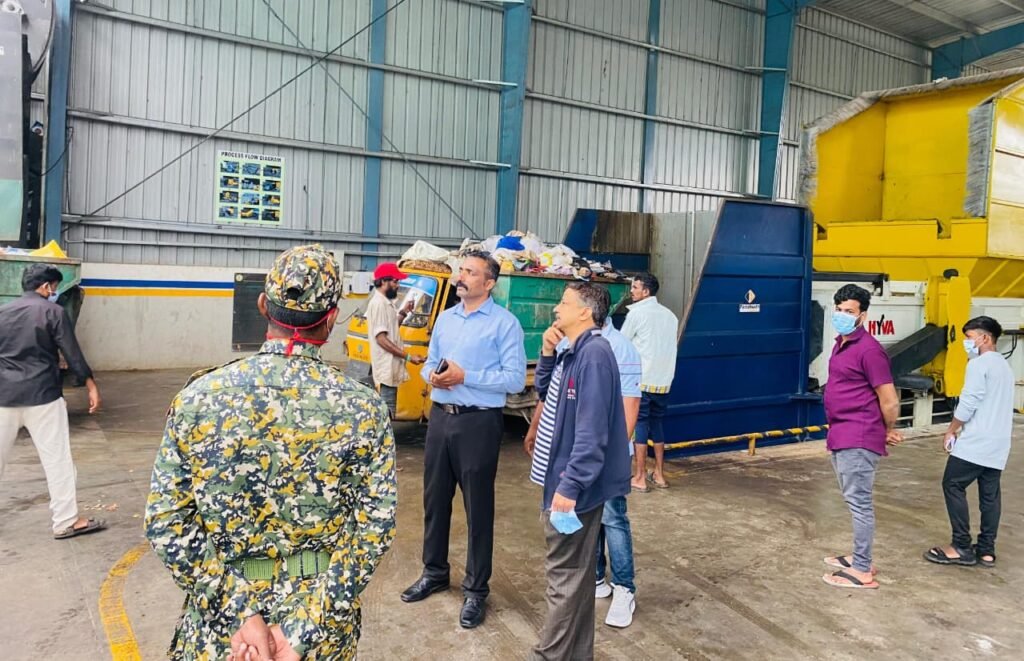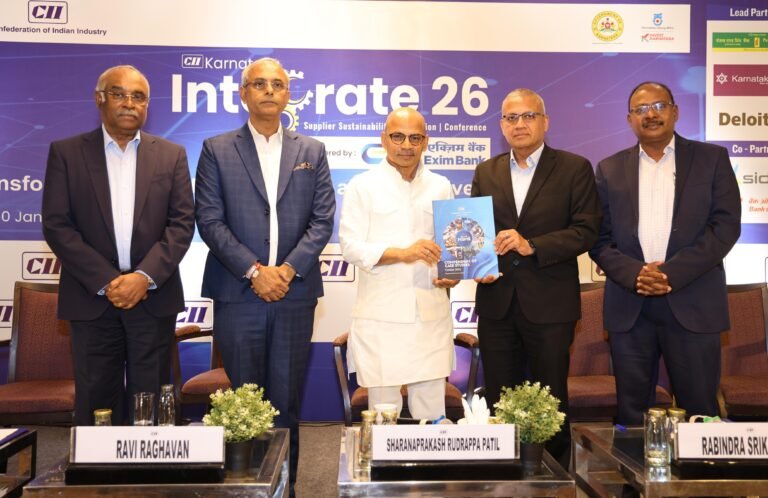
Bengaluru: Following the successful operation of the Ejipura secondary waste transfer station, Bengaluru South City Corporation is planning to establish similar facilities in each ward to provide localized and scientific solutions to the city’s growing waste management challenge. Commissioner K.N. Ramesh confirmed that efforts are already underway to scale up the model across the south Bengaluru.
The Ejipura facility, operational since March 2024, currently processes 160–170 metric tonnes of waste daily collected from eight wards. A dedicated team of 35 staff manage operations, and the waste is transported to processing facilities through a fleet of seven capsule vehicles, each capable of carrying two capsules holding 16–18 tonnes of compressed waste. This reduces vehicle trips and enhances efficiency.

The Commissioner, who inspected both the transfer station and the automated segregation unit, noted that the unit has the capacity to segregate 40 metric tonnes of waste per day, helping reduce the burden on city landfills.
Key Features of the Ejipura Transfer Station:
All auto-tipper entries and vehicle movements are tracked through CCTV surveillance.
Vehicle route details, registration numbers, and waste weight are digitally recorded.
Wet waste is separated and compressed directly into capsule containers designed to prevent leachate leakage.
GPS-enabled trucks transport compressed waste to processing plants.
Segregated waste is recycled and reused, easing pressure on landfill sites.

Commissioner Ramesh stressed that the Ejipura model demonstrates how localized transfer stations can transform waste management. “Setting up similar facilities in each ward will allow us to handle waste scientifically and efficiently at the local level. This is the direction we are moving towards,” he said.






